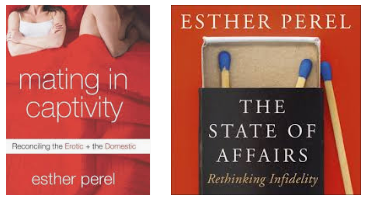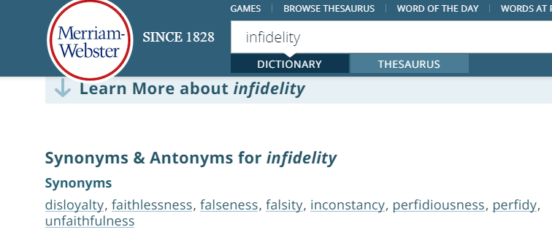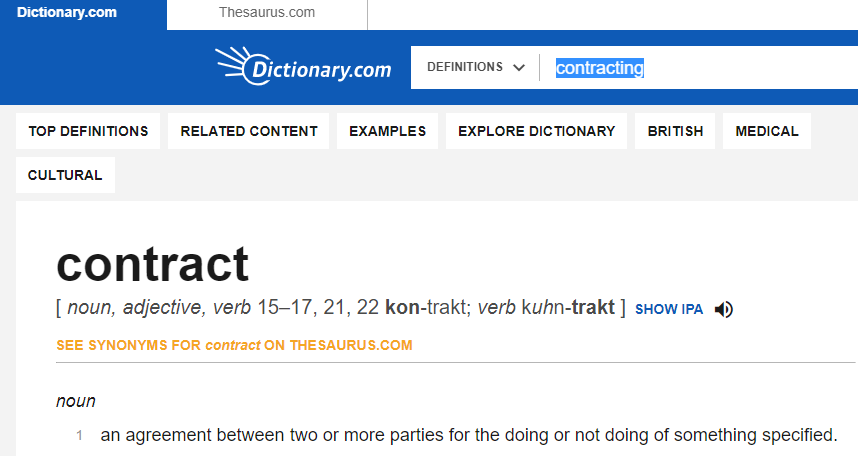The secret to desire in long term relationships
I am in love again. I have such a girl crush on Esther Perel. I can't stop talking to people about her. As I talked about in a previous week's blog, she is changing my life

I am in love again. I have such a girl crush on Esther Perel. I can’t stop talking to people about her. As I talked about in a previous week’s blog, she is changing my life (well, she and the horses together).
Some of you might not need to read this…you might be in a long term passionate relationships. But for those of you, like me, who still feel you have lots to learn, read on.
Perel is a relationship psychotherapist from Belgium who came out from behind her therapeutic walls and started public conversations about desire with her Ted Talk called ‘The Secret to Desire in Long Term Relationships’.
That was in 2013 and since then she has give another Ted Talk in 2015 called ‘Rethinking Infidelity: a talk for anyone who has ever loved’. She has written books on both subjects too.
I, unusually, have not read her books but have listened to hours and hours of podcasts of her work. Her own podcast is called Where Shall We Begin which I mentioned briefly in my ‘Autumn’ blog. You don’t need to pay for it on Audible, you can download it for free on your podcast app. The podcast is ground breaking in that it is live couple therapy. The sessions are humbling and vulnerable and of course, it is almost impossible to listen without hearing your own issues and voices coming back to you.

I have not only listened to those podcasts, but countless others (and many still to go) of interviews with her on other podcast series (just search for her by name and 144 came up on my app!). I find her remarkable. She is articulate, intelligent, witty, authentic and thinks about things so uniquely, shattering old myths and assumptions and stating how things actually are, rather than how they should be.
I can’t begin to articulate as well as she does but these are the things which are really resonating with me, helping me see relationships differently.
It is not sex toys and new positions which keep desire present in long term relationships, but the erotic, the aliveness of the relationships.
Perel describes the erotic in its widest sense of ‘eros’ the life force. She describes some relationships as ‘alive’ and others as ‘not dead’, some which are surviving, rather than thriving.

She talks about the need for play and fun, the need to keep learning and doing new things together. The need to not take each other for granted and to keep putting the same amount of energy into a long term relationship as one would put into having an affair.
Her research shows that what those who have affairs most often say is that they felt ‘alive’. They are interested in each other, look good for each other, prioritize time alone together, imagine how things will be together. All these things which get overlooked over the kitchen sink.
She challenges the old beliefs that these behaviours shouldn’t be necessary once we are settled, that being committed ‘should be’ enough. It’s not.
We need to play together, laugh and explore the novel in our lives rather than just in bed. She describes how now her kids have grown she and her husband learn new things together and apart, go travelling, challenge each other so that they can keep re-discovering themselves and each other. We need risk and variety. We need to take chances and explore.
We also need to take responsibility for our own desire. We need to do what brings us to life, see people who help us thrive, go on adventures and not expect our partner to meet all our intellectual, social, emotional (and Dan Savage would say, sexual) needs. To expect our partner to bring us to life is unfair, we need to do that for our self as well as together Perel says.
Sex is part of play
Perel talks a lot about how sex is the arena where adults can play together, where they can take on different power roles, where they can imagine, where they can bring things in through fantasy that they would never contemplate in real life. However, shame kills our ability to play as do the four horsemen: criticism, contempt, blame and stonewalling (see below) because they break the trust that is needed to create a safe place where adults can play together.
To play together we need to be happy with ambiguity, curiosity and novelty, not just in the bedroom but in how we live our lives. We need to feel not only connected but protected by the other so that we can find the freedom needed to lose ourselves in imagination.
Care kills desire
Caring is giving, looking after, tending and nurturing. This is part of what we seek in a long term relationship. But, says Perel, it kills desire for desire is about ‘what I can take’ and care is about ‘what I can give’ and when we can not take what we desire, the erotic fades. She describes so perfectly what women friends and I have named over the years, the fact that we spend all day, working (for many of us in caring jobs), looking after the house, the pets, the diaries, the bills, the kids and our partner, that when we collapse into bed, exhausted at the end of a long day, sex feels like just another chore to do, another thing to be ticked off the list before we can rest.

There is nothing less erotic than obligation and expectation. There is nothing so erotic than being desired, wanted, reached for and taken (obviously by someone we permit to). It allows us to surrender, to be relieved of more care-taking, more things to do, more looking after everyone else’s needs, and allows us to focus on our own.
Desire, she says, is when I attend to my own needs. When I find my own pleasure in turning you on, when I please myself in touching your skin and hair. When I see you your desire match mine in return.
I can not be mother and lover at the same time. When we feel like our partner’s mother or father desire dies as we cross into the incest taboo; it is morally wrong and repulsive to have sex with someone who we are parenting.
To desire something, there has to be a space between it and us. I can not desire and take something I already have. To desire my partner I have to see them as separate, as I did when we were first dating, have to stay curious, stay interested, appreciative, admiring, have to do all the things above.
Desire is our responsibility she says. It is all too easy to blame the other, our partner for our lack of desire and yet she asks her clients to answer these questions:
- What do I do to turn myself off?
- What can I do to turn myself on?
Take a minute to ask yourself. Aren’t they amazingly helpful questions?
So how do we balance freedom and space required in order to desire whilst having the closeness and security we crave in commitment. She says we have to work at keeping the relationship alive outside of the bedroom in all the ways described above. That we have to be able to change modes. Like walking; left foot caring and giving, right foot taking and desiring. Both/and, not either or.
There isn’t ‘The One’ – love is a verb
I was brought up on the fairy tale that there was ‘The One’, but as I’ve had number of long term committed relationships I had already worked out that wasn’t true for me. She says that the myth of The One leads people into magical thinking that sex ‘should’ just work, that relationships ‘should.’ just work all the time, without any work or intention. And that if they don’t ‘just work’ it is because we haven’t found ‘The One’ and so instead of turning inwards to work at our existing relationships, we move on to find a new ‘One’.
She argues that long term relationships and desire need planning and care, that desire needs imagining, and that seduction starts immediately after the last orgasm, no matter how long you have been together.
Love Stories and Life Stories
Perel’s professional and personal experience (she has been married for over 30 years and has two sons) is that there are love stories, which are beautiful and can be with people very different from ourselves, but that we confuse these with thinking they are life stories and I have done this myself. Life stories, she says are built of shared values and interest and are supported by a community of friends, some shared and some not.
No one person can give you everything.
Perel argues that what we want from relationships nowadays is unrealistic, we want that which not so long ago, we would have got from the whole community. We want friendships, and passion and our intellectual equal and someone to confide in. It is too much she says, we need relationships outside our primary one so that we can get some needs met there too (by which she doesn’t mean affairs, but friendships and networks).
The soul mate used to be god
She argues that this idea of ‘soul mate’ comes from religion and that to expect transcendence from another person used to be what we hoped for from our religions and our gods and this expectation can be too much for one other person to meet.
Unconditional love is a myth
‘You should love me anyway’. We have all heard it or said it I imagine. Wrong, says Perel, love needs work. We wash when we go to work, why wouldn’t we wash when we have time at home. We would never talk to work colleagues in the way some people talk to their partners. We invest time with friends and colleagues when we have nothing to say to our partner. This, she says, is how love dies. Love takes work and commitment and attention. Unconditional love is a myth, we need boundaries and respect.
Admiration, she says is crucial. When we admire someone we see them as separate, as different from us. We see them succeeding or interacting in a way which is distant from us and we feel proud of them, see qualities and interactions that we admire and this admiration fuels desire, makes them desirable to us. We don’t desire what we can’t admire. So simple an idea yet I find it true.
All relationships have seasons and conflict
Relationships ebb and flow. Of course when we start a new job our energy may go into the job and take out of the relationship, but we need to pay attention to this and not go overdrawn. Stephen Covey talks about the ’emotional bank account’; we need to pay in more than we take out in terms of attention, energy, intention, action and appreciation. If we have been running down our relational bank balance, we need to pay into it again.
Esther Perel talks about how in conflict we have to own the harm done to the other through our words or actions. We need to take responsibility for our part of the conflict/disagreement/upset. Then we need to make reparation to make it right and make determined and consistent behaviour change. Avoiding conflict is atrophy and calcification. Conflict, she says is inevitable and neither good or bad, but how we engage with it, explore it, own it, take responsibility, learn from it, help the other to heal from it, is how expand our relationships through conflict
Checking in with how the relationships is going
In her therapy room, things have by then gone drastically wrong for the couples in the chairs. They are defensive, entrenched and worn down by the same old irritations and rows without knowing how to get out. Perel argues that all our unrealistic expectations lead us to expect too much and talk about what we want and feel too little.
She recommends annual commitment checks where we ask each other:
- How’s our relationships. Where are we now? How are we doing?
- What do we appreciate? What is good?
- What has changed?
- How did I hurt you?
- What does commitment look like to you?
- What does family mean to you?
- How and where do you want to live and work?
- What can we do differently?
- What does parenting/ sex/ marriage mean to you now?
- What mistakes have you made?
- What big discoveries have you made?
- What do you value?
- What do you do well?
- What are you proud of me for?
- What do you admire me for?
- How have you changed and developed since we first met?
- What are do you wish you had done differently?
- What have you enjoyed?
- What would you miss if we ended now?
- How do you want things to be moving forward?
In fact she says that we need to stop asking each other what we have been doing but instead ask ‘What have you been thinking?’ ‘What does that mean to you?’.
Do you dare ask your partner those questions?
Key behaviours which kill long term desire and relationships
I have read the work of John Gottman before, but Perel has reminded me of how important it is. Gottman refers to what he calls ‘The Four HorseMen (of the apocalypse):

Gottman’s work is research based and he found that criticism, contempt, defensiveness and stonewalling are the four most destructive behaviours in relationships (You can read more about them here). His institute offers what he calls ‘antidotes’; alternative behaviours; instead of criticism use ‘I ‘ statements to say how you are feeling. Replace contempt with appreciation and defensiveness with taking responsiblity for our own actions, thoughts and feelings. Instead of stonewalling (the silent treatment, storming off, withdrawal), self-sooth and then re-engage.
Perel goes on to add to this list. Indifference (‘I don’t care’), neglect disrespect, taking someone for granted are killers of love and joy as are acts of what Perel calls ‘micro-aggression’; eye rolling, tutting, ignoring, scrolling, walking away, disengaging.
Laziness, neglect, contempt, routine, complacency, judgement, blame all kill relationships says Perel.
Behaviours and attitudes that relationships need to thrive
If we are to have thriving long term relationships as well as avoiding the horsemen and the other behaviours above we need to have positive attitudes and behaviours towards each other. We need diligence (emotional as well as practical and functional), intentionality (i.e. putting intentional positive energy into the relationships) adventure, curiosity and humility.
We need to be able to listen, to discuss meaning and to be open to investigating with an open mind and heart what is going on with you, me and us. We need to be able to rejoice in each other’s successes and pleasures and we need to do sometimes do things for and with each other that we would never want to do our self, but we whole-heartedly want to do because it pleases you.
‘Please’, ‘thank you’, ‘excuse me’, ‘sorry’ she says are words which convey respect and care and when they go missing in a relationship indicate the lack of those qualities. When we drop these courtesies in relationships we are taking the other person for granted and forgetting that we are replaceable, that they can leave.
We all need to feel acknowledged and appreciated. Gottman’s research found that in order for relationships (any relationships) to thrive we need a ratio of 5:1 positives and appreciations.
She says we all need to feel that our partners admire us, respect us, want the best for us and care about our well-being. We want to know that we matter and that we are someone of importance to the other. We want to be treated with benevolence, forgiveness and kindness.
Truth
We all know that truth telling is a central part to trust and yet in a couple of podcast interviews Perel has talked about ‘truth’ and as with everything she says, she problematises it and discusses it as a social construct. The demand for the truth, above all else, is, she says, a product of puritanism, of Catholicism, where the need to unburden and go to confess to ease the inner torment of the speak is tantamount.
But, she says, there are other cultures and systems where kindess and care of the family, community or couple system is more important than this individual unburdening. Our partner is not our confessor, she says, we can not expect them to give us impartial absolution so when we say ‘your bum looks big in that’ or whatever the equivalent is. Unkind truths can destroy the relationship rather than builds trust because it lacks care and consideration for the other.
Work and long term desire
Perel does have a whole series of podcasts about relationships at work, but I haven’t listened to them (yet) but she uses work to draw parallels to our relationships. She points out to couples that they speak to each other in ways that they would never speak to clients or colleagues. Makes them see that they would never sit and scroll with a client because they would know that they would lose that business and yet they do it at home. She talks about how at work we are animated, interested, engaged and interesting but then don’t invest the same energy in our long term relationships.
Redefining infidelity
Adultery, Perel argues, has existed as long as marriage has, it’s just that it was the preserve of men. Women couldn’t afford to cheat in case they fell pregnant and were thrown out when they had no financial way of supporting themselves and risked losing their children.
Perel is an academic as well as a practitioner and so argues, not any more. Women are having affairs as often as men so the research shows. Because they can. Because they myth of women not liking sex was in fact a way of obfuscting they way women had less economic, reproductive and social power.
It turns out that the research shows that women get bored of sex in relationships sooner than men perhaps because the romance fades and they are taken for granted once living in the same home. So women don’t go off sex in their relationships, they go off sex with that man, in that relationship in that time. So the paradigm of men ‘needing’ lots of sex, variety and partners does not stand up to scrutiny. Women want it just as much and can now go do what men have been doing all along.
When we think of infidelity, we think of it as someone having an affair and yet, argues Perel, affairs often arise from other acts of infidelity. She argues that it is a withdrawal of energy from the relationships so yes it can be staying on dating apps, sexting, ‘massage with happy endings’, sex clubs or porn. But it can also be working so long that you have no energy left for your partner, scrolling rather than engaging with them, storming out, going silent, getting drunk every night, seeing more of your mates than you do of your partner. We betray our partners when we are contemptuous, judgmental, when we don’t listen, when we don’t support them, when we don’t respect their boundaries, wants and needs.
Ambiguous loss
In one podcast she spoke about ‘ambiguous loss’, the person with dementia who is alive but whose mind is gone. The kidnapped child who has gone but can not be mourned. She described so well, for me, the feeling of utter loneliness I have had when I am with someone with whom I was meant to be close, who is in the same room as me but is absent because their attention is on work or their phone or the chores. You see it in pubs and restaurants where one person is on their phone and the other is looking on lonely. This is ambiguous loss, this, says Perel is infidelity.
Infidelities are small acts and not just grand affairs and without small acts, many of the grand affairs would be less likely to happen. 
‘Most of us will have 2 or 3 marriages/ committed relationships in our lifetime, some of us will have them with the same person.’
I love this idea. It has been my experience of serial monogamy, but when I look at the people I know who are in erotic/alive long term relationships, that they have changed several times in response to age, children, work. Perel, herself talks about how she and her husband (who is a trauma therapist) have had three marriages as their lives have changed and each marriage has needed a complete re-construction and re-contracting to work out if they still wanted to carry on.
This feels so true to me. Marriage was a financial construct to ensure the passing of lands and wealth from one generation to the next when women had no financial agency and we all died around age 50. How can we expect to stay married/ committed to the same person until we are potentially 70, 80, 90 without renewal and change in how we relate. To not change is to be in a relationship which ‘is not dead’ rather than one which is ‘alive’ and I have never wanted that.
So, what do we do? When a relationship feels stuck or dying or dead we look at what has ended and ask questions about what has ended (see below) and then we ask the questions above to work out if we were to continue, how would we move this relationship forward. We consciously articulate the ending of one phase and then moving into the new phase adapting boundaries, expectations and even ways of living to suit us now, rather than trying to hold onto what suited us then.
Re-define success in relationships
Following on from the above Perel takes the stigma out of serial monogamy. How can relationships which last 10, 15, 20 years and have raised children, supported careers and then break down be failures? So much is achieved and enjoyed in those times and this needs celebrating. I have always felt such shame when another relationship has ended, like there is something wrong with me in not being able to sustain the long term hitch. But her approach is just more rational, less fairy tale, more true. We outgrow each other and what we want and where we want to go and to stay together would demand too much sacrifice and ‘deadening’.
I remember talking to one lover, now good friend about how some relationships never really end but change form. He and I were friends, then lovers then friends once more and the form of the relationship changed, how often we see each other, who else we have in our lives, but the love we have for each other remains. Surely this is something to celebrate and not to mourn?
Complexity not binary
What I love about how Perel thinks is how she moves us away from binary thinking. Right/wrong, true/false, faithful/unfaithful, adulteress/ cuckold, successful relationship or failed.

She does not give easy answers. She does not give ‘Three steps to better sex’. She demands conversations and complexity.

It seems to me that this is what we need not just in our intimate relationships, but globally. Gender relationships have changed so much since my parents married in the 1960s and my grandparents would not have been able to imagine a time when women could chose to have sex for fun without fear of pregnancy, when we could work and be financially independent. Our grandparents could not imagine assisted pregnancy, choosing to remain childless, same sex marriage, gay parenting, multiple monogamies. As Perel says, monogamy used to mean one relationship for life and now means ‘one at a time’. Our parents and our generation are new to transgendering, polyamory.
We used to have fixed roles, Perel aruges, handed down from the church or the community. Butcher, baker, wife, mother, virgin, whore. Now those structures have gone. We look for the divine outside of the church walls. We seek redemption in each other’s arms. We find community outside of our villages, on line.
Life is complex. Relationships have to embrace this or ossify and die. What worked this year, with kids this age, with this work, and this amount of money can not survive based on last year’s model and situation. We need to keep talking, negotiating, exploring and for this we need open minds and flexibility. We need to engage our partners, co-workers, children with curiosity and a real willingness to ask ‘How are we doing?’ and ‘What does this mean?’ and to really listen to learn rather than to prove them wrong and ourselves right.
In the past, Perel says, the certainty of those social and gender roles gave security and belonging but no freedom. Now we have so much freedom, so many choices we need to make that we crave belonging and certainty. There is no one size fits all, we have to explore together and keep re-contracting along the way.

Breaking up
Perel even has thoughts on how to ease things when they are breaking up. Rather than apportioning blame she turns a break up into a learning experience by asking questions such as:
- What did you learn about yourself in the relationships?
- What did you learn about relationships?
- What do you take with you at the end of this relationship which is of value?
- What are the things that will make you smile as you look back on this relationship?
- What are the things that you wish you had done differently?
- How do you want to be remembered?
- What do you want your partner to take from you?
Given that in 2018 the UK divorce rate was 42%, we need to rethink things. Surely a key relationship skill we need to learn and teach our kids is how to bring a relationship to a close with kindness and dignity given that the likelihood is that they will be at the end of relationships many times in their lives.
As Perel says, if Apple phones only worked 42% of the time we wouldn’t blame the individual phone, we would need to rethink the brand. It is too easy to blame the couple, the individuals for the failure of a relationship when in actuality, nearly half of us will be affected by divorce and separation directly and most of us will be by being daughter of, step-parents to, siblings of divorced and separated families. The institution of marriage is no longer a reliable brand and yet we keep buying it.
Our expectations of relationships have never been higher and yet ours is the generation who were brought up by a generation where there social codes and expectations which kept the marriage in place. I don’t want to go back to those times where we ‘had to’ stay married for economic stability and to avoid social shame, but I am aware that I do not/ have not had all the skills I need to navigate this more fluid, complex relationship world which is why I have been listening so hard (and writing so many notes).
I asked someone much younger than me, half my age, about some of this and there still seems to be, in her opinion the idea of magically finding The One and happy ever after. However, it was interesting listening to her language as she talked about her partner of 6 years. She didn’t talk about ‘forever’, she talked about how she liked it now. She talked about how they had monthly ‘review’ conversations about the relationship rather than waiting for things to go wrong and then to talk. I learned from her as well as Perel.
We can not keep using the old behaviours to create the new multiply-satisfying relationships we seem to want. Whether we like it or not, relationships are living in turbulent times and yet I feel optimistic. I have friends who have strong, caring and supportive relationships with their ex, I see children who are not as devastated as I was as a child when a marriage comes to an end because the social shame is gone and relationships are ending more simply and amicably. Blended families, living-apart-together, monogamish, polyamoury are all words which did not exist even ten years ago. Relationships are changing fast and I need to skill up to meet that demand and to help my children navigate this already changed and changing faster world.
I recommend you Esther Perel. She really is one of the most radical, sensible, research based, authoritative, articulate thinkers of our time. I can only poorly summarise her here, go listen to her and find out more yourself.
Julie Leoni
Coach, author, podcaster, facilitator, Yoga and psychology teacher, learner
I have over 30 years of experience and qualification in various therapeutic and meditation/mindfulness based approaches. I work with change. Some changes we chose, others happen to us. Sometimes we know we want to change but don't know how. Sometimes we don't want to change but external events or people are forcing us to change. The menopause, children leaving home, the end of a relationship or job, becoming a parent, coming out, bereavement are just some of the personal changes I support people with. I also work with people who want to make changes to their life and wider world in response to social issues such as Covid, the climate crisis and racial, sexual and gender inequalities. Times are changing whether we want them to or not and we need to be nimble, agile, curious and open in order to part of the new story emerging. Work with me to get clear on what matters to you, what makes your heart sing and what kind of future you want for yourself and those you love. It is possible to live differently, get in touch to explore how.



